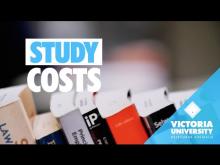Our campuses are easily accessible from Melbourne's public transport network.
You will need to buy myki card (a reusable travel card) to travel by train, tram and bus in Melbourne and regional Victorian centres. You can buy a myki card at some train stations, all 7/11 stores and many newsagencies.
Visit the Public Transport Victoria (PTV) website for timetables, routes, maps, journey planners and fares.
Concession fares
You may be eligible for a concession myki.
Melbourne free tram zone
There is a free tram zone in the Melbourne CBD. Make sure you know exactly where the free zone boundaries are.
Driving and cycling
Whether you own your own car or bicycle (bike) or choose to rent, make sure you consider the ongoing costs. Costs include servicing, fuel, insurance, driver’s licence fees and vehicle registration fees.
Renting a car or bike is a cheaper option. Melbourne bike share is a great option for short trips around the city and inner suburbs.
Check our campus transport and parking options for:






